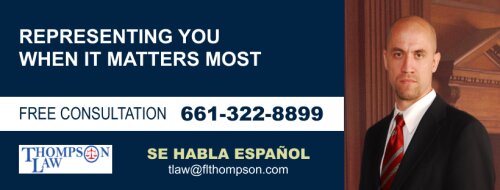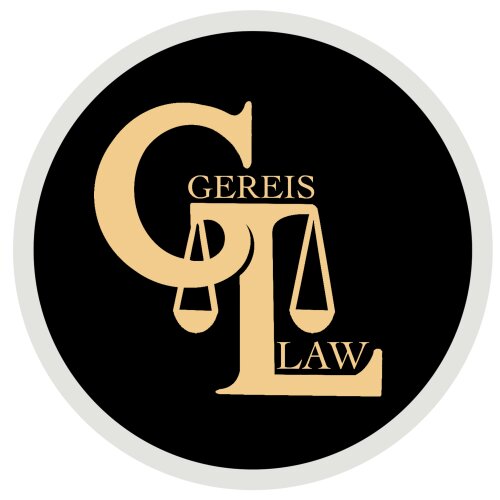Best Drunk Driving Lawyers in Vermont
Share your needs with us, get contacted by law firms.
Free. Takes 2 min.
Or refine your search by selecting a city:
List of the best lawyers in Vermont, United States
About Drunk Driving Law in Vermont, United States
Drunk driving, known as driving under the influence (DUI) in Vermont, is taken very seriously by law enforcement and the courts. A DUI charge typically involves operating a vehicle with a blood alcohol concentration (BAC) of 0.08 percent or higher. Vermont also considers being under the influence of drugs or a combination of substances as grounds for DUI. The consequences can be severe, including fines, license suspension, and even jail time. The intention behind these laws is to protect everyone on the road and reduce fatalities and injuries related to impaired driving.
Why You May Need a Lawyer
Most people facing DUI charges in Vermont quickly realize the complexity of these cases. You may need a lawyer if you have been arrested for drunk driving, refused a breathalyzer or chemical test, have prior DUI convictions, or caused an accident. An attorney can help explain your rights, navigate the legal process, and present possible defenses. Legal support is particularly important if your job or livelihood depends on your ability to drive or if the DUI charge involves aggravating factors such as property damage or injury.
Local Laws Overview
Vermont has distinct DUI laws that both residents and visitors should understand:
- Legal BAC Limits: Drivers aged 21 or older must not have a BAC higher than 0.08 percent. Commercial drivers are limited to 0.04 percent, and drivers under 21 face a zero-tolerance limit of 0.02 percent.
- Implied Consent: By driving in Vermont, you agree to submit to breath, blood, or urine testing if suspected of DUI. Refusal can result in immediate license suspension and additional penalties.
- Penalties: First-time offenders may face fines, license suspension for at least 90 days, the possibility of jail time, and mandatory alcohol education or treatment programs.
- Repeat Offenses: Penalties become harsher with each conviction and may include longer suspensions, higher fines, ignition interlock device requirements, and extended jail time.
- DUI with Injury: Causing injury or death while impaired can lead to felony charges and far more significant penalties.
Frequently Asked Questions
What is considered driving under the influence in Vermont?
Driving under the influence means operating a vehicle with a BAC of 0.08 percent or higher, or being impaired by drugs or a combination of substances, regardless of BAC.
What happens if I refuse a breathalyzer test in Vermont?
Refusing a breathalyzer or chemical test typically results in immediate license suspension and may lead to additional penalties, even if you are not convicted of DUI.
Are DUI penalties harsher for repeat offenders in Vermont?
Yes, repeat DUI offenses carry steeper penalties, including increased fines, longer license suspensions, ignition interlock requirements, and potentially longer jail sentences.
Can I get a hardship or restricted license after a DUI in Vermont?
Some drivers may be eligible for a restricted or ignition interlock device license, allowing limited driving privileges. Eligibility depends on factors such as offense history and compliance with court orders.
What is an ignition interlock device?
An ignition interlock device is a breathalyzer installed in your vehicle that requires you to provide a breath sample before starting the car. It is often required for repeat offenders or as a condition for regaining driving privileges.
Will a DUI conviction appear on my criminal record?
Yes, a DUI conviction is a criminal offense in Vermont and will appear on your record, potentially impacting future employment and other aspects of your life.
Can I challenge the results of sobriety tests or breathalyzer results?
It is possible to challenge the validity of these tests in court. An experienced DUI attorney can help identify errors in testing procedures or equipment calibration.
What should I do if I am stopped for suspected DUI?
Remain calm and polite. You have the right to remain silent and to contact a lawyer before answering questions. You can also ask if you are free to leave.
Is it possible to have DUI charges reduced or dismissed?
Depending on circumstances, such as lack of evidence or procedural errors by police, a lawyer might be able to negotiate a reduction or dismissal of charges.
How long will a DUI conviction affect my insurance rates?
A DUI conviction can significantly increase your insurance premiums for several years, typically three to five years or longer, depending on your provider and circumstances.
Additional Resources
If you need more information or assistance with a DUI charge in Vermont, consider the following resources:
- Vermont Department of Motor Vehicles (DMV) - Offers information on license suspension and reinstatement procedures.
- Vermont Judiciary - Provides details on court process and public records.
- Vermont Legal Aid - May offer guidance or referrals for those who cannot afford an attorney.
- Substance Abuse Treatment Providers - Many DUI penalties require alcohol education or treatment programs.
- Local Law Enforcement Agencies - Can provide copies of police reports and arrest records upon request.
Next Steps
If you or someone you know is facing a DUI charge in Vermont, it is important to act quickly. Start by gathering all relevant documents, such as the police report and notice of suspension. Contact a qualified DUI attorney in Vermont to discuss your case and potential defenses. Attend all scheduled court dates and comply with any administrative deadlines regarding your license. Taking swift, informed action gives you the best chance of minimizing the consequences and protecting your rights.
Lawzana helps you find the best lawyers and law firms in Vermont through a curated and pre-screened list of qualified legal professionals. Our platform offers rankings and detailed profiles of attorneys and law firms, allowing you to compare based on practice areas, including Drunk Driving, experience, and client feedback.
Each profile includes a description of the firm's areas of practice, client reviews, team members and partners, year of establishment, spoken languages, office locations, contact information, social media presence, and any published articles or resources. Most firms on our platform speak English and are experienced in both local and international legal matters.
Get a quote from top-rated law firms in Vermont, United States — quickly, securely, and without unnecessary hassle.
Disclaimer:
The information provided on this page is for general informational purposes only and does not constitute legal advice. While we strive to ensure the accuracy and relevance of the content, legal information may change over time, and interpretations of the law can vary. You should always consult with a qualified legal professional for advice specific to your situation.
We disclaim all liability for actions taken or not taken based on the content of this page. If you believe any information is incorrect or outdated, please contact us, and we will review and update it where appropriate.
Browse drunk driving law firms by city in Vermont
Refine your search by selecting a city.









